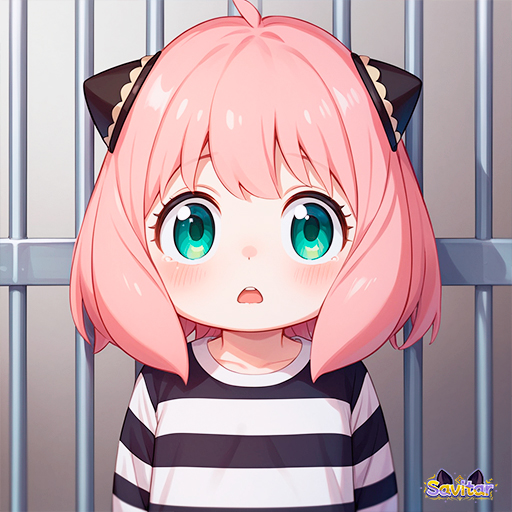🔥Access +100 Characters NSFW Hardcore for just $9.99 Monthly 😈
Is Lolicon Illegal Worldwide?
The legality of lolicon is a topic that often sparks confusion and debate. While some countries have strict laws against certain forms of fictional depictions, others approach the issue with more nuance. So, is lolicon illegal everywhere? In this article, we’ll explore the legal landscape of lolicon
LOLI
Savitar
9/5/20243 min read


The legality of lolicon is a topic that often sparks confusion and debate. While some countries have strict laws against certain forms of fictional depictions, others approach the issue with more nuance. So, is lolicon illegal everywhere? In this article, we’ll explore the legal landscape of lolicon across different countries and examine the varying regulations and attitudes towards this controversial genre.
Understanding the Legal Debate
Before diving into specific countries, it’s important to understand the core of the legal debate around lolicon. Since lolicon involves fictional characters that appear to be minors, many question whether it should be treated the same as material involving real minors. Critics argue that lolicon normalizes inappropriate behavior, while defenders claim it is purely a form of fantasy with no connection to real-world harm.
The laws surrounding lolicon often reflect this tension between concerns about potential harm and the protection of free expression.
Countries Where Lolicon Is Strictly Banned
Several countries have taken a firm stance against lolicon, treating it similarly to material involving real minors. In these nations, any depiction of characters who resemble minors in sexual situations is considered illegal, regardless of whether the characters are fictional.
Australia: Australia has some of the strictest laws when it comes to lolicon. The government has ruled that fictional depictions of minors, including in manga and anime, are illegal. This includes both visual content and written descriptions.
Canada: Similar to Australia, Canada also bans lolicon, treating it as child pornography even though it involves fictional characters. Authorities have prosecuted individuals for possessing or distributing lolicon content.
United Kingdom: The UK has laws that criminalize the possession of images that depict minors in sexual situations, even if the images are fictional. This means that lolicon falls under the country’s strict laws on child protection.
Countries with Ambiguous or Flexible Laws
In other countries, the legal stance on lolicon is less clear, with laws that may vary based on interpretation or enforcement.
United States: The legality of lolicon in the U.S. is a gray area. While federal law criminalizes content involving real minors, fictional depictions like lolicon occupy a more ambiguous space. Some states have stricter laws than others, and prosecutions have occurred in cases where lolicon was deemed to cross into obscenity laws. However, lolicon is not universally banned at the federal level.
Germany: In Germany, the legality of lolicon depends on how the material is classified. If it’s deemed to glorify violence or represent inappropriate relationships, it can be illegal. However, the law’s interpretation can vary, making enforcement inconsistent.
New Zealand: While New Zealand has strict laws against child pornography, there’s some ambiguity regarding lolicon. While not explicitly illegal, lolicon could fall under laws that ban objectionable material, depending on its content.
Countries with Lighter or No Restrictions
Some countries either don’t have specific laws regulating lolicon or have taken a more lenient approach to the genre.
Japan: As the origin of lolicon, Japan allows the creation and distribution of lolicon under specific circumstances. While real child pornography is banned, fictional depictions, including lolicon, are protected under freedom of expression. However, social and political pressure has been growing in Japan to impose stricter regulations on the genre.
Mexico: In Mexico, there is no specific law against lolicon, and it largely remains legal to create, distribute, and possess. However, there have been discussions around potential restrictions, particularly in the context of child protection laws.
France: Lolicon in France exists in a legal gray area. While laws around child exploitation are strict, there hasn’t been a strong legal push to ban or regulate fictional depictions like lolicon, making it more tolerated compared to other countries.
Cultural Context and Legal Interpretation
One of the main reasons why lolicon’s legality varies so much is the cultural context in which it is viewed. In some countries, depictions of youthful characters in sexual situations are considered highly offensive and morally wrong, regardless of whether the characters are real. This often leads to stricter laws and harsher penalties.
In other countries, especially those with a stronger focus on creative freedom, there’s a greater willingness to differentiate between fiction and reality. Here, lolicon is seen more as a form of art or fantasy, rather than something that should be subject to legal control.
Conclusion: A Patchwork of Laws
As we’ve seen, the legal status of lolicon varies widely depending on the country. While some nations have enacted strict bans, others take a more nuanced or flexible approach, allowing the genre to exist with fewer restrictions. Ultimately, the legality of lolicon is shaped by a complex mix of cultural, legal, and moral factors.
For those interested in the genre, it’s important to be aware of the laws in your own country, as well as the ongoing debates around censorship and creative freedom. The discussion about whether lolicon should be restricted is far from settled, and the legal landscape will likely continue to evolve in the coming years.


